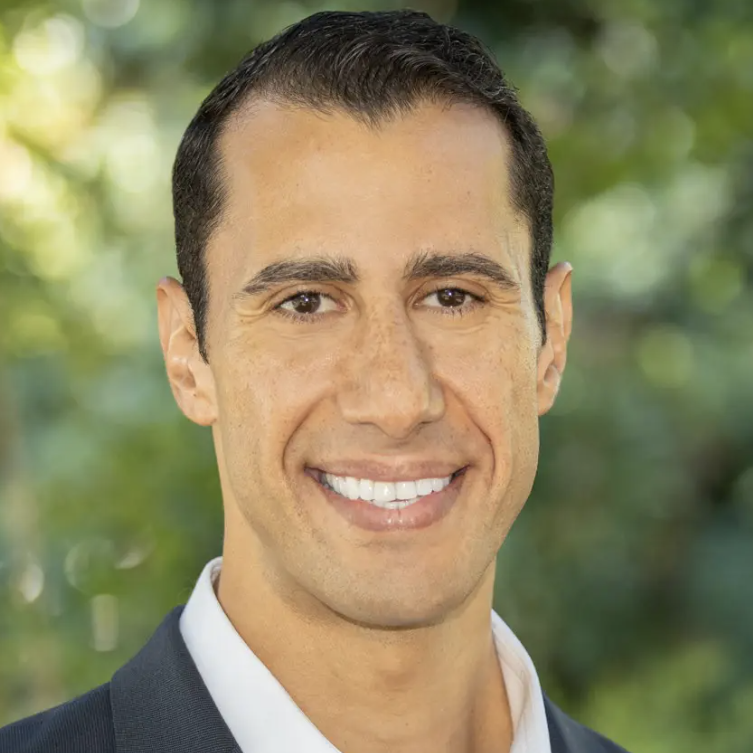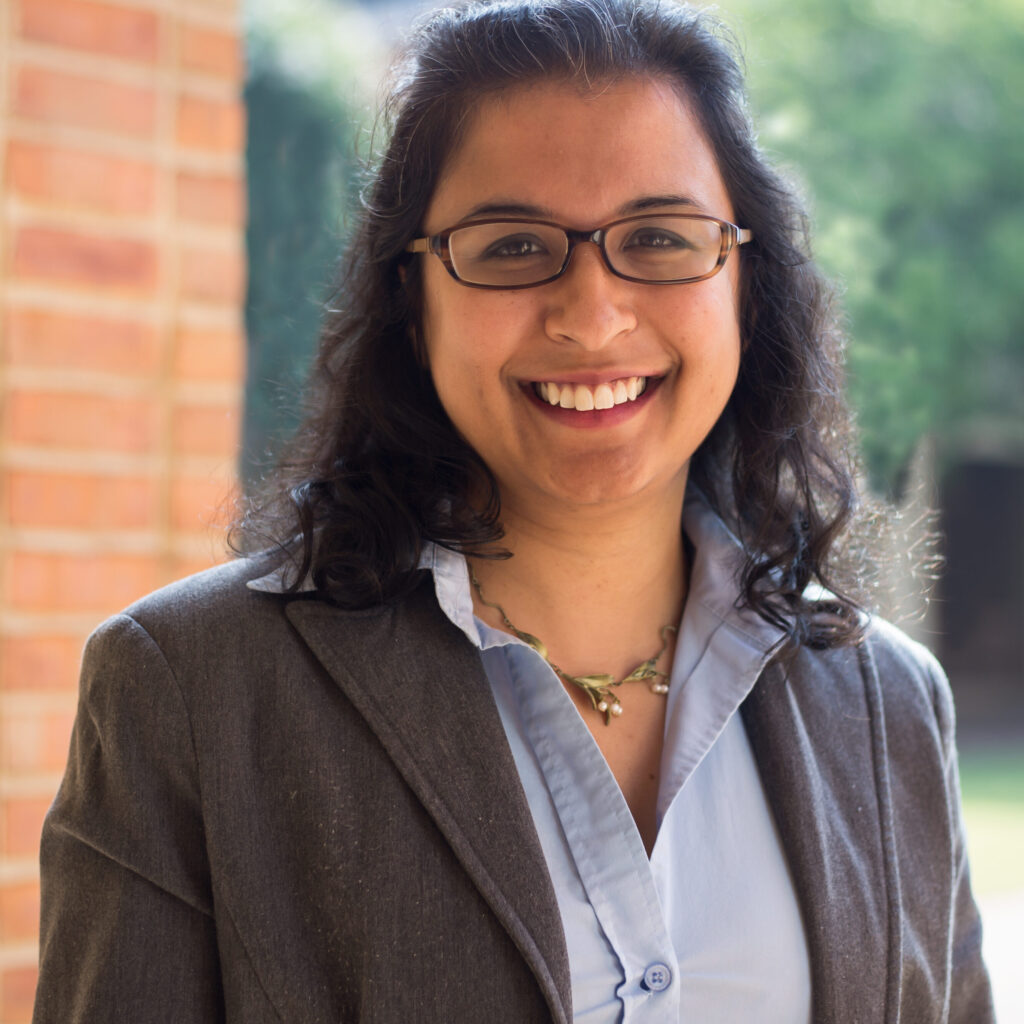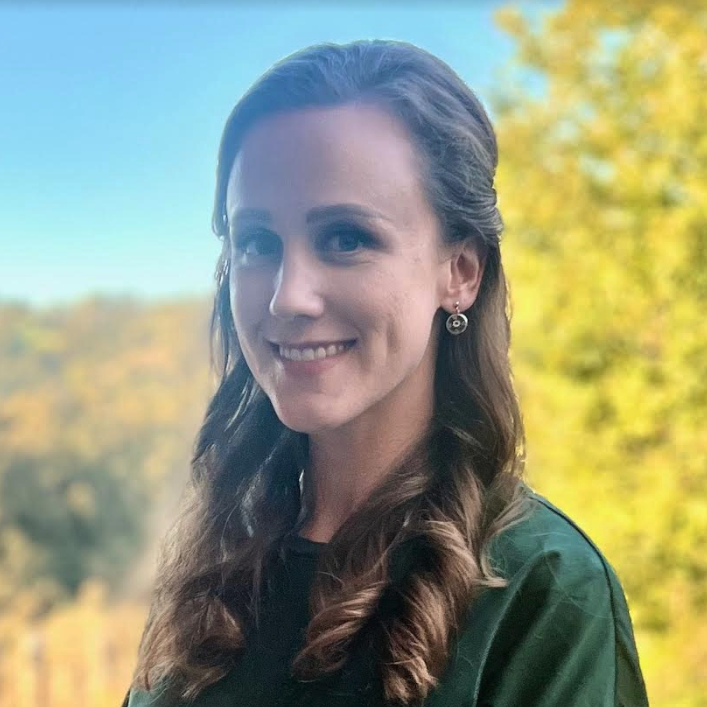Peer-to-Peer AI Seminars

Modeled on the successful Peer-to-Peer Program the CAT facilitated in 2020, this initiative invites instructors to participate in one of 16 peer-led AI Seminars that will run throughout the summer and early fall. This faculty-centered approach honors existing expertise, provides discipline-specific guidance, and allows our teachers to support one another as they reflect on the implications of AI for teaching and learning at Wake Forest.
To meet the needs of numerous faculty in the busy summer months, we’ve encouraged peer facilitators to lead seminars with different topics, dates, times, structures, and modalities. Nevertheless, each seminar will offer participants 8-10 hours of structured learning experiences and each facilitator will be able to spend up to $100 per participant on food, books, trial licenses for AI tools, or anything else relevant to the goals of the seminar.
Please note: Funding for this initiative is allocated by special donation to support faculty, so staff will be automatically placed in the role of auditors. If you are a staff member who teaches a course, please email Megan at mhobbs@wfu.edu when you register. Unfortunately, we are not able to fund student participation at this time so involvement will be at the discretion of the individual facilitator. Any Wake Forest instructor scheduled to teach a course in the 2024-2025 academic year, or a full-time continuing faculty member on leave, is eligible to participate. This includes tenure-stream faculty, teaching professionals, visiting professors, postdoctoral fellows, part-time instructors, and staff who teach courses.
This page will allow you to browse detailed information about each seminar, use filters to search for an AI seminar that meets your needs, or view all seminars on a calendar. Most seminars are open to faculty from all disciplines, but two are limited to specific cohorts (writing and law). Each cohort will be limited to 15 participants, so we encourage those interested to register as soon as they are able!
Seminar Details

Developing AI Outcomes & Assignments in WRI 111 Courses
Aug. – Sept. | 2 Sessions Erin Branch
Writing Program
Seminar Description
The goal of this seminar is to explore the possibilities of building instruction in AI (or critical use of AI) into a learning outcome, module, or assignment that would apply across all first-year writing courses. The Writing Program is in a unique position to develop critical AI literacy among all undergraduate students, and this seminar will allow faculty to weigh alternatives and develop concrete plans.
Seminar Schedule
- August 19th, 9:00 AM – 1:00 PM (ZSR 665)
- September 9th, 9:00 AM – 1:00 PM (ZSR 665)
- 2 hours of asynchronous work
Seminar is now complete.

Balancing Innovation & Integrity in the Age of AI
Aug. – Oct. | 4 sessions William Cochran
Computer Science
Seminar Description
The advent of generative AI problematizes traditional methods of teaching and learning in higher education, prompting faculty with new questions: How should we manage AI’s ability to complete student’s work? What steps, if any, can we take to prevent the misuse of AI by students? How can we equip students for an AI-driven future without fostering dependence on this new technology?
To help address these and other questions, this seminar aims to tackle the following topics: a general introduction to generative AI—what it is and what it can do; its potential benefits for teaching and learning; its potential risks and harms; practical strategies for balancing innovation and integrity. Participants should leave the seminar with a principled rationale for their AI policy in their own courses and a general set of best practices for effective teaching in the age of AI.
Seminar Schedule
- August 23rd, 12:00 – 2:30 PM (ZSR 664)
- September 6th, 12:00 – 2:30 PM (ZSR 664)
- September 20th, 12:00 – 2:30 PM (ZSR 664)
- October 4th, 12:00 – 2:30 PM (ZSR 664)
Seminar is now complete.

AI: Implications, Innovations, & Insights
August | 3 sessions
Mohamed Desoky
Professional Studies
Seminar Description
The purpose of this seminar is to address ethical dilemmas in the context of Large Language Models, demystify artificial intelligence (AI) models, and uncover the potential of interdisciplinary applications.
In Section 1, we will review various ethical dilemmas and discuss possible solutions, with the goal of codifying our individual philosophy toward integrity and plagiarism-related issues. Access to innovative AI tools has made the objective assessment of honor very difficult to conclude a ‘fact’, so how do we navigate that? What frameworks or evidence do we need to approach a student confidently? This section will offer a collaborative environment to exchange ideas on these difficult topics.
Section 2 will ultimately provide faculty the confidence to speak to in-vogue AI models with students and even offer application exercises. We will discuss foundational machine learning models; however faculty are not expected to have a programming background or write AI models in connection with this seminar. The models will purely be used to introduce and solidify our unified comprehension of these innovations, as well as future possibilities. We will also briefly explore the acquisition of domain-specific generative AI models to further advance our own ideas.
And lastly, AI has the potential to address grand challenges facing society, such as healthcare, climate change, education, and sustainability. We will attempt to tackle these complex societal problems by proposing insights and methodologies in addressing an interdisciplinary- specific challenge. Section 3 will thus be a forum to leverage our unique disciplines and industries to form a collective mentality when considering the application of AI.
Seminar Schedule
- August 8th, 12:00 – 1:00 PM (Zoom)
- August 15th, 12:00 – 1:00 PM (Zoom)
- August 22nd, 12:00 – 1:00 PM (Zoom)
- 5 hrs of asynchronous work
Seminar is now complete.

The Rule of 100: Building Skills with Gen AI
June – July | 5 sessions Daniel Englebretson Communications
Seminar Description
This seminar series will serve as a roadmap for personal development that teaches participants how to put 100 minutes back in their day, 100 dollars back in their wallet, and 100x their ability to learn and do.
The course narrative will begin by addressing fears and uncertainties surrounding AI, followed by an introduction to the “Rule of 100” and its impact on efficiency, quality, and speed. The modules will cover a range of topics, from identifying opportunities for AI application to simple, intermediate, and advanced applications in personal and professional life. The course will culminate in a comprehensive case study demonstrating the transformative potential of AI integration.
Throughout the course, participants will engage with interactive elements, worksheets, and pre-built prompts to facilitate hands-on learning and practical application. The instructor’s personal stories, such as using AI for health and fitness, family time, and educational support, will serve as compelling examples of AI’s potential to improve work-life balance and overall well-being.
Seminar Schedule
- June 4th, 1:00 – 2:00 PM (Zoom)
- June 11th, 1:00 – 2:00 PM (Zoom)
- June 18th, 1:00 – 2:00 PM (Zoom)
- June 25th, 1:00 – 2:00 PM (Zoom)
- July 2nd, 1:00 – 2:00 PM (Zoom)
- 3 hours of asynchronous work
Seminar is now complete.

AI Essentials for Academics: Tools to Enhance Your Teaching and Research
July | 4 sessions
Will Fleeson
Psychology
Seminar Description
In this seminar, participants will learn about and discuss five overarching topics:
- Conceptual issues related to AI (how it works, dangers)
- Tools for teaching
- Tools for research
- Ways to incorporate AI in education
- Issues around AI in education (what are we trying to teach, cheating, AI fluency)
The goal is for participants to walk away with:
- Practical experience and comfort with AI
- Exposure to how AI works
- Understanding of dangers and opportunities for society
- Identification of several tools to aid in teaching
- Identification of several tools to aid in research
- Create two or more ways to include AI in one’s course
- Understand AI fluency as an educational goal
- Understanding of dangers and opportunities for education
Seminar Schedule
- July 9th, 9:30 AM – 12:00 PM (ZSR 665)
- July 11th, 9:30 AM – 12:00 PM (ZSR 665)
- July 16th, 9:30 AM – 12:00 PM (ZSR 665)
- July 18th, 9:30 AM – 12:00 PM (ZSR 665)
Seminar is now complete.

Beyond Chat: Leveraging Fine-Tuned LLMs for Targeted Teaching Tasks
Late Fall, Exact dates TBD
Jerid Francom
Spanish
Seminar Description
This seminar is for faculty who are interested in exploring the potential of fine-tuned Large Language Models (LLMs) for enhancing teaching and learning. In a nutshell, fine-tuning involves training an existing LLM (ex. ChatGPT) on a specific dataset to adapt it to perform targeted tasks more effectively and accurately, such as providing personalized feedback on student writing, generating case studies in psychology, creating realistic economic scenarios, or developing adaptive problem sets in mathematics.
The seminar will provide specific examples of fine-tuned LLM applications in different disciplines and address ethical considerations and best practices. Participants will also have the opportunity to brainstorm potential applications of fine-tuned LLMs in their courses and will leave the seminar with a concrete plan for integrating these models into their teaching practice. This seminar is suitable for faculty members who would like to go beyond the basics of standard chat applications.
Seminar Schedule
- Postponed until late Fall, dates TBD. Please feel free to express your interest by registering below. Thank you!

Cross-Examining Generative AI
August | 4 sessions
Raina Haque
Law
Seminar Description
Summary:
- Workshop facilitated by Raina Haque, Nancy Winfrey, and Jennifer Elliot
- Gifted trial access for participants to advanced AI tools
- Great food provided (Raina promises)
- Learn how to use advanced AI mindfully so that you can model this ability for students (many of whom are using it mindlessly)
- Learn how to use Advanced AI to alleviate some of the frustrations in your work as a teacher/scholar/administrator
- In-Person or remote attendance (Google Hangouts) option
- Some asynchronous pre-work (which will be pretty painless, Raina promises)
- Spots limited to 15 people
Details:
Join us at the end of the summer for a hands-on series of workshops focused on the integration of generative AI (GenAI) in Wake Forest Law legal education, scholarship, and administration. We will work together to brainstorm how GenAI tools can address challenges in teaching, research, and administrative tasks. Engage in dynamic discussions, and get hands-on experience with advanced AI tools, and get reimbursed for trial access to those GenAI tools.
Explore cutting-edge AI technologies that can streamline tedious tasks and enhance your capabilities. The workshop is designed to be both enjoyable and enriching, offering a valuable opportunity to understand and utilize AI tools effectively. Our students are already engaging with these technologies—let’s ensure we stay ahead of them. We will take care to address the workshop to the participants needs, be that generating grading rubrics for papers, coming up with syllabuses, or even best practices for approaching students with special needs. Once you understand how these tools work, we will brainstorm together about how they can help each of us in our work.
Lunch will be provided for those who choose to be in person on Day 5. With limited availability for just 15 attendees, secure your spot early and discover how generative AI can help realign your work at Wake Forest Law with your gifts and talents. We bet you’ll leave this workshop with a spring in your step.
Seminar Schedule
- August 5th, 10:00 AM – 12:00 PM (Worrell 1109, or Zoom – you choose)
- August 6th, 10:00 AM – 12:00 PM (Worrell 1109 or Zoom – you choose)
- August 14th, 10:00 AM – 12:00 PM (Worrell 1109 or Zoom – you choose)
- August 16th, 11:00 AM – 1:00 PM (Worrell 1109 or Zoom – you choose)
- 2 hrs of asynchronous work
Seminar is now complete.

Integrating AI Tools into your Research and Teaching
Aug. & Nov.| 2 sessions Denice Lewis
STEM Librarian
Seminar Description
This seminar will include an overview of different AI tools that can be used for different parts of the scientific method. The “Let’s play!” portion of the session will focus on taking a given research topic (not familiar to participants) and exploring how to use a given tool to solve a problem or complete a task.
This seminar will also review strategies for integrating AI tools into a class (teaching the students the tool, what types of assignments make sense, determining how to assess the student’s use of the tool, and reflecting on what worked and didn’t (for the instructor and/or the student).
A practice portion will be included, which will ask participants to pick an AI tool and ask themselves how they might incorporate it in their class and to think about the learning objective(s) that might go along with its use, as well as whether there are any barriers for a student to use that particular tool.
Seminar Schedule
- August 30th, 12:30 – 4:30 PM (ZSR 665)
- Nov 1st, 12:30 – 3:30 PM (ZSR 665)
- 3 hours asynchronous work
Seminar is now complete.

Enhancing Classroom Experiences with AI
July | 2 sessions
Shannon McKeen
Business
Seminar Description
Unlock the power of Generative AI to improve your classroom experience. In this hands-on workshop, you’ll discover how to leverage AI tools to create personalized and adaptive learning experiences tailored to your students’ diverse needs. Through interactive exercises, you’ll learn to develop customized lessons and assessments that cater to different learning styles, while significantly reducing preparation time.
Explore practical strategies for integrating Generative AI into your teaching practices, enhancing student engagement and learning outcomes. We’ll cover best practices for responsible AI usage, addressing ethical considerations to ensure a safe and inclusive learning environment.
By the end of this session, you’ll have the skills to harness the potential of Generative AI, enriching student learning and increasing your teaching effectiveness. Discover how these cutting-edge technologies can free up your time for higher-value activities, such as student mentoring and curriculum development.
Seminar Schedule
- July 24th, 9:00 AM – 1:00 PM (Farrell 108)
- July 31st, 9:00 AM – 1:00 PM (Farrell 108)
Seminar is now complete.

Incorporating AI into Quantitative Student Research
July | 2 sessions
Andre Mouton
Economics
Seminar Description
Courses involving a research component offer us a unique opportunity to educate students – and ourselves – in the effective and responsible use of AI as a research aide. This seminar will discuss methods and exercises for incorporating AI into student research projects, with a focus on the quantitative sciences. Likely topics include literature review, idea generation, drafting, coding, and writing presentations. Ideally, seminar participants will leave with:
- a better understanding of AI’s current abilities and limitations in a research context
- concrete applications that participants will have developed for their own courses, and
- strategies for assessing AI-assisted student work.
Seminar Schedule
- July 24th, 10:00 AM – 3:00 PM (ZSR 665)
- July 31st, 10:00 AM – 3:00 PM (ZSR 665)
Seminar is now complete.

Exploring AI for Teaching in the Humanities
August | 3 sessions
Lynn Neal
Religion
Seminar Description
The rapid development of AI technologies has major implications for teaching and learning across all disciplines, including the humanities. As faculty committed to excellence in humanities teaching, it is vital that we engage with these technologies, critically examine their potentials and pitfalls, and develop strategies for effectively integrating them into our pedagogical practices where appropriate.
By fostering interdisciplinary dialogue and knowledge sharing, this community will empower faculty to navigate the evolving AI landscape and make informed decisions about if, how, and when to incorporate AI tools in their humanities courses and curricula.
Objectives:
1. Build faculty understanding of current AI capabilities and limitations, especially as pertains to teaching and learning in the humanities.
2. Facilitate sharing of practical AI integration strategies, activities, assignments, etc. across the humanities.
3. Provide a supportive space for hands-on experimentation with AI tools.
4. Collaboratively develop best practices and guidelines for responsible AI adoption.
**The first 3 in this list will take priority if we don’t have time for all.
**Co-authored with Claude.ai
Seminar Schedule
- August 13th, 9:00 AM – 12:00 PM (ZSR 665)
- August 14th, 9:00 AM – 12:00 PM (ZSR 665)
- August 15th, 9:00 AM – 11:00 AM (ZSR 665)
- 2 hours asynchronous work (reading)
Seminar is now complete.

But What About Images?! Utilizing Image and Visual AI Tools in the Classroom
September | 2 sessions
Morna O’Neill
Art History
Seminar Description
This seminar will discuss the central issues around AI-image generation and how they can be used as a tool in the classroom for discussing not only the visual but also discipline-specific content. It will look at popular AI image generating tools and how these tools use datasets and language to generate a visual image. It will also address limitations of AI-image generation and the impact it has on artists and designers.
Seminar Schedule
- Sept. 23rd, 8:30 AM – 12:00 PM (Scales 110)
- Sept. 27th, 1:30 PM – 5:00 PM (Scales 110)
Seminar is now complete.

Leveraging Generative AI in Advancing Research and Streamlining Teaching Administration
October | 2 sessions
Pelin Pekgun
Business
Seminar Description
In this seminar, participants will discover the potential of Generative AI to enhance their research, as well as improve efficiency and productivity in classroom administration tasks. In this interactive workshop, faculty will explore practical applications of AI aimed at streamlining data processing, enhancing analytical capabilities, and automating routine tasks.
Through real-world case studies and hands-on examples, participants will gain valuable insights into integrating AI into daily operations, with a focus on reducing time spent on repetitive and non-value-added tasks.
This workshop will demonstrate the ability of AI technologies to optimize workflows and allow for the allocation of resources towards creative endeavors, as well as help uncover deeper insights from data by identifying patterns that can assist faculty in making more informed decisions.
Furthermore, this session will delve into best practices for maintaining ethical standards and responsible deployment of AI technologies, ensuring compliance and transparency in AI-drive processes. By the end of the session faculty will have actionable insights and strategies to leverage Generative AI effectively, enhancing research productivity and driving innovation in analytics research.
Seminar Schedule
- Oct. 4th, 9:00 AM – 1:00 PM (Farrell 247)
- Oct.11th, 9:00 AM – 1:00 PM (Farrell 247)
Seminar is now complete.

Empowering Language Learning through AI
August | 2 sessions
Kit Pribble
Russian
Seminar Description
This seminar is intended for Wake Forest faculty who teach foreign language classes or who conduct research in the field of second language acquisition.
The seminar will focus on strategies for incorporating generative AI into the language classroom in a way that is both ethical and effective. We will discuss methods for using AI for conversation practice, out-of-class tutoring, in-class activities, and writing in the target language. We will also consider the impact that AI has on students’ experience and perceptions of language learning.
Over the course of the seminar, participants will produce an AI policy for their foreign language syllabus and create or revise a series of oral and written assessments to incorporate AI scaffolding.
Seminar Schedule
- August 20th, 12:00 PM – 3:00 PM (ZSR 664)
- August 21st, 12:00 PM – 3:00 PM (asynchronous)
- August 22nd, 12:00 PM – 3:00 PM (ZSR 476)
Seminar is now complete.

Generative AI in STEM & Graduate Education
July – August | 6 sessions
Fred Salsbury
Physics
Seminar Description
This seminar will focus on how we might incorporate GAI into more advanced coursework, science coursework, and student research. Questions to be addressed will include:
- how can we use GAI to help students focus on learning science? and
- how can we guide students in the use of generative AI in science?
There will be a special focus on how students might use GAI in quantitative problem-solving and modeling.
Seminar Schedule
- July 1st, 1:00 – 2:40 PM (ZSR 665)
- July 8th, 1:00 – 2:40 PM (ZSR 665)
- July 15th, 1:00 – 2:40 PM (ZSR 665)
- July 22nd, 1:00 – 2:40 PM (ZSR 665)
- July 29th, 1:00 – 2:40 PM (ZSR 665)
- August 5th, 1:00 – 2:40 PM (ZSR 665)
Seminar is now complete.

Peer Review in an AI Era: Challenges & Opportunities
Dates TBD
Ryan Shirey
Writing Program
Seminar Description
This seminar is designed to help faculty who use peer learning and peer evaluation as key parts of their pedagogy to navigate the challenges and opportunities that generative AI presents.
While the primary emphasis will be on student peer review and writing feedback, participants will also be encouraged to think carefully about the ways that new technology can facilitate and/or pose challenges to the way that students teach and learn from one another in other contexts (such as group work, multimodal projects, etc.).
We will think creatively and critically about the ways that LLMs reproduce genre and language conventions that have the potential either to help students cultivate analytical and rhetorical awareness of their own and one another’s work, or to lead them to fall back on generic patterns of response to writing situations that lack specificity around individual voice, interpersonal relationship, and rhetorical exigency.
Seminar Schedule
- Exact dates dependent on registrants’ schedules. Please feel free to express your interest by registering below and a survey will be sent in late August to determine meeting dates. Thank you!
Filter by Attributes
Use this database to search seminars by filtering for numerous attributes (structure, modality, months, days, times, topics, etc.). Click the small carrot to the right of the column/field title and then click “filter by this field” or “group by this field” to organize the information that is most relevant to you. You can also click the “expand” buttons in the bottom right-hand corner to expand the view of the entire database and at the left of each row to bring up a view of all the details for any particular seminar.
